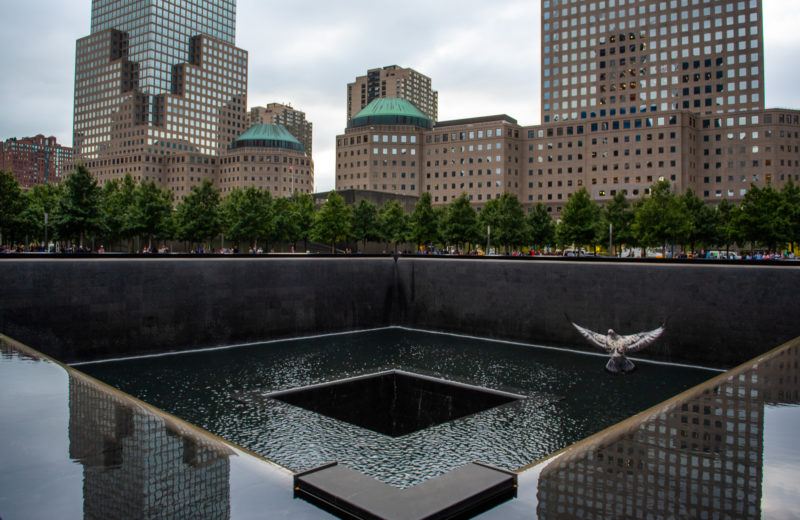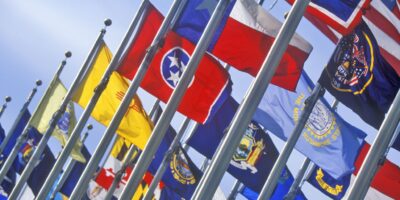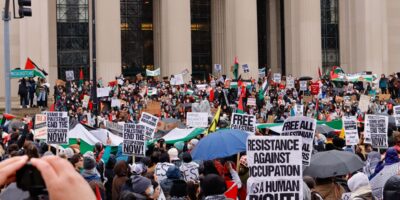A Locked-Down Country Is Vulnerable to Attack

Right now, hundreds of thousands of businesses are closed, and countless American streets are empty. Individuals, families, and businesses are rapidly burning through their savings, supply chains are atrophying, and every economic indicator is revealing a rapid retrenchment from healthy levels just one month ago. We have had a stock market crash, an oil price crash, inverted yield curves, and many other warnings revealing an economy in serious distress.
What if, in this state of worsening economic vulnerability, the once-unthinkable were to happen yet again?
What would tomorrow look like if today were September 10, 2001?
It’s true that, presently, aircraft are hardly flying and most office buildings are operating with skeleton crews, and thus the mechanics of an attack of the sort perpetrated on September 11th, 2001, are unlikely. But for all they lack, the enemies of the United States are surely not short of ideas or a terrifying form of homicidal entrepreneurialism. Propriety resists speculation as to other ways that such a thing could take place, but as a wealthy nation with many major cities, ports, and other critical points, America has and will always have vulnerabilities.
In a state of lockdown, we are more vulnerable than ever. People are prisoners in their homes, with private firms shuttered and inert. America is in a recession, and perhaps in a depression. Government resources are depleted, and a sizable portion of the population is wandering around their home demoralized, confused, and depressed.
Straight talk: the United States is tremendously vulnerable right now.
Despite Trump’s campaign pledge to end American’s “endless wars,” soldiers, sailors, airmen, Marines, and government contractors in military roles are active every second of every day worldwide. Whether one believes that America’s foreign engagements are wholly justified or that they are an incredibly unsustainable exercise in imperial overreach – Americans in combat in four or five countries; another 150,000 troops in 800 bases spanning 150 countries; and entangling alliances in most of the remainder – the idea that these interventions don’t create new enemies, some of whom are likely to be innovative in the most sinister of ways, is both gullible and irresponsible.
The Congressional Research Service’s September 2002 Report “The Economic Effects of 9/11: A Retrospective Assessment” makes clear that one of the major factors blunting the full impact of the attacks was the Fed’s immediate action.
The economy was contracting when 9/11 occurred … The terrorist attacks did cause some severe localized effects, especially in and around the target areas, and that may have muted the magnitude of growth in the 4th quarter. The fairly modest effect may have been due to assurances given by the Federal Reserve within hours of the attack that it was still in business and that sufficient liquidity would be available for the financial community. Over the next three days the Federal Reserve added some $100 billion per day in liquidity.
And that only takes into account the days and weeks after the attacks. There were, of course, longer-term effects of the attacks in the tourism, airline, insurance, and food/agriculture sectors, as well as to some 18,000 small businesses near the World Trade Center, and in both New York City and Washington, D. C. more broadly. We live today with much of the legacy of that awful day, where I personally saw and experienced the devastation first-hand.
Fast forward to today, and we are facing a nationwide, politically-imposed economic standstill wherein the Federal Reserve has already extended massive programs of historic size and scope. The Fed Funds rate is, once again, effectively at zero. It seems doubtful that, were another such tragedy to occur, they would have much dry powder left other than unconventional monetary policy options.
It would be naive to think that the squeamishness and knee-jerk policy response demonstrated in the face of COVID-19 hasn’t been noticed by adversaries of the United States: most of all by those with whom any conflict is likely to be asymmetric in nature. Many of the same people who advocate for “readiness” in a military sense haven’t or don’t seem to have considered how politicians shutting down the entire US economy have increased our exposure to risk in a very short amount of time.
If we know that we’re vulnerable, “they” surely do as well. It is especially ironic that the Trump Administration has labeled Bitcoin and cryptocurrencies a “national security issue,” but for all we can tell either hasn’t considered or has chosen to neglect the risks posed by a prostrate economy.
Which points to another, more immediate fragility exposed by recent policy choices: kinetic attacks are one thing, but if the enemies of the United States know that the government will shut down our entire economy in the face of spreading disease, will the long-conjectured possibilities of more subtle but lethal assaults – the purposeful spreading of smallpox, measles, or other highly contagious diseases – appear? Will microbes be the new WMDs?
We are now at the trough of a self-inflicted economic collapse. If military adventurism is to remain a core (if unfortunate) facet of America’s foreign policy gadgetry, I would argue for a rapid reprioritization of the economic aspects of national security. The revealed propensity to lock the U.S. economy down in the face of uncommon but not existential uncertainty represents an Achilles heel that will likely not be overlooked, at least not for long.
Even, sadly, if arguments about liberty, prosperity, and quality of life do not resonate with many Americans, the basic notion of civil continuity should. These are admittedly uncomfortable topics which require discussion as a nation: discourse about policy, foreign and domestic, and about what we as a people are willing to bear for the doubtful benefits and already soaring costs of global interventionism.











